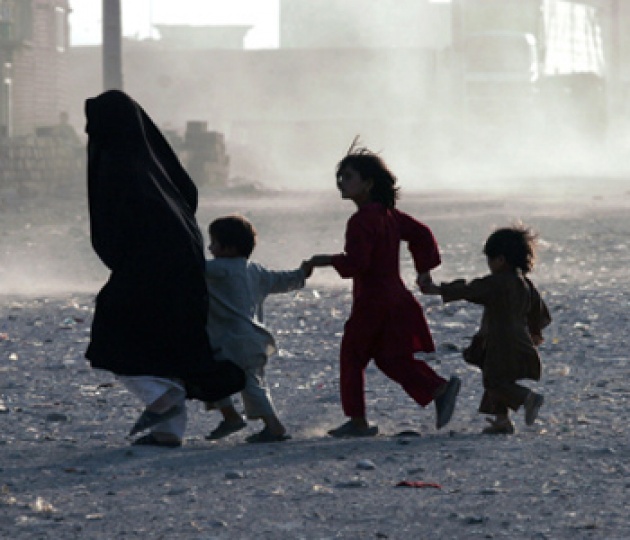آیا افغانستان به دوران جنگها و منازعات داخلی برگشت میکند؟... پاسخ به این سوال به اندازهی طرح آن ناگوار و اذیتکننده است. خاطرهی جنگهای داخلی هنوز هم بر روان مردم افغانستان مسلط است. شکی نیست که از جنگهای داخلی کسانی نفع بردند. این جنگها برای از بینبردن برخی از سنتهای کهنه و ایجاد برخی از سنتهای جدید نیز موثر بوده است. اما هزینهی این جنگها تنها بر گردهی جمعی خاص سنگینی میکند.
پال کولیر، در اثر تحقیقی خویش که «The Bottom Billion» نام دارد، میگوید که جنگ برعلاوهی اینکه انسانها را میکشد، رشد اقتصادی کشور را در ازای هر سال 2.3 درصد پس میزند. بنابراین، کشوری که هفت سال را در جنگ سپری کرده باشد، 15 درصد فقیرتر از زمان آغاز جنگ میشود. جنگ مریضیهای اپیدمیک، مهاجرت و جابهجایی نفوس و آوارگی به بار میآورد. اخلاق جامعه آسیب میبیند. مردم از لحاظ روانی آسیب میبینند... آیا آنچه در دوران جنگ به دست میآوریم، به آنچه در جریان جنگ از دست میدهیم، میارزد؟ ... کسانی که بخواهند به این سوال پاسخ مثبت دهند، زیاد نخواهند بود؛ اما کمیت انسانهای بیزار از جنگ برای جلوگیری از جنگ کفایت نمیکند.
زبان و ادبیات ما در جلوگیری و یا تشدید جنگ موثر است. موضعی که اتخاذ میکنیم، تصمیمی که میگیریم، ائتلافی که ایجاد میکنیم یا پیوندی که میشکنیم، همه در جلوگیری یا تشدید جنگ نقش دارند. انتخاباتی که پیش رو است میتواند فرصتی باشد که خرد و تدبیر ما برای مدیریت بهتر جامعه را در دوران انتقال سیاسی بزرگ آن تمثیل کند. اگر در این مرحله خوب عمل نکنیم، فرصتی دیگر در اختیار نخواهیم داشت که به فکر جبرانش براییم.

Will Afghanistan return to another civil war?... The answer to this question is as troubling as raising it as a concern. The trauma of the civil war is still haunting the psych of the Afghan people. No doubt, some benefited from the civil war. Moreover, these wars have been effective to eliminate some of the old traditions and forging some new traditions and systems of values. Meanwhile, the cost of the war has burdened special segments of the society.
Paul Collier, in his book “The Bottom Billion” says that “Civil war tends to reduce growth by around 2.3 percent per year, so the typical seven-year war leaves a country around 15 percent poorer than it would have been.”
Besides, war inflicts epidemics, displacements and immigration; the ethics of the community diminishes; people suffer psychological hits. The question is whether the gains of the wartimes matches to its loss?... Those who might wish to have positive answer would not be too much. Novertheless, the quantity of those hating war would also not suffice to prevent the war.
Our language and literature is effective in our efforts to prevent or escalate the war. The stance we choose, the decision we make, the alliance we forge or the tie we break, are all affecting the attempt to prevent or escalate the war.
The upcoming elections in 2014 can be an opportunity to prove our wisdom and thoughtfulness to the management of the country in its great juncture of political transition. If we fail to act well in this stage, we would be given no more chance to remedy the loss.
http://www.bbc.co.uk/persian/afghanistan/2013/07/130731_k02-un-afghan-civilians-casulties.shtml



